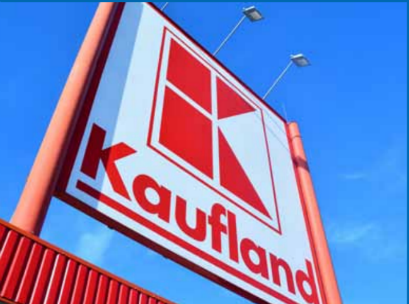 An industry group made up of FoodWorks, IGA, Friendly Grocer and more are stepping up a campaign in protest at the arrival of German hypermarket, Kaufland, to Australia.
An industry group made up of FoodWorks, IGA, Friendly Grocer and more are stepping up a campaign in protest at the arrival of German hypermarket, Kaufland, to Australia.
Jos de Bruin, CEO Master Grocers Association, who is involved with the Save Our Shops campaign said that the retailer poses a “major risk to any family enterprise and private business”.
De Bruin told Inside FMCGthat the Save Our Shops campaigners are frustrated because the consortium went straight to the Minister for Planning instead of the usual process of going through councils.
“What we’re saying is the minister should be pushing back and putting all Kaufland sites back in the hands of councils. That’s where it should be. It should be discussed with local communities rigorously to understand the impact of having major sites rezoned,” de Bruin said.
Victorian Planning Minister Richard Wynne formed a planning advisory to look at the proposed rollout of six stores and the national headquarters in Melbourne.
“The planning committee is there to do a job and we’ll go through that process of giving our views forward to say why the minister should not be calling these projects in,” de Bruin said.
He was concerned that the terms of reference are very narrow and worries that not enough will be done to halt the retailer.
Kaufland told Inside FMCG in a statement on Friday afternoon that the Victorian government’s advisory committee process is “legitimate, transparent and accountable and encourages public engagement”.
The company said that the Planning Minister allowed Kaufland to seek planning approvals under Section 151 of the Planning and Environment Act 1987. This process allows any interested party to make a submission and seek to appear in front of an independent panel of experts.
The retailer said that the panel process is “not about” mass rezoning of industrial land and it was necessary to go direct to the minister given the scale of the project.
“Kaufland is making significant investment and employment decisions for which it requires a degree of certainty that a traditional planning pathway through six individual Councils could not provide. Cases such as Kaufland’s, in which certainty is needed across multiple sites at one time, are one of the reasons such a panel process exists.”
“Our development proposals are considered and appropriate. We have identified six initial Victorian sites for which we believe our retail offering will contribute positively to the built environment.”
Two of the sites are for supermarket uses, two are Commercial 2, Section 2 “merit-based assesments” and the final two are “zoned industrial”.
“Regardless of the prescribed planning process, Kaufland will continue to engage with local Councils in whose communities we are seeking to invest. We look forward to engaging further with community organisations and business groups as we continue on our path towards store openings. We will be a part of these communities for the long term,” the retailer said.
Destination retailer
Kaufland is known as a “destination retailer” as its stores are planned for sites outside of the main town centres. De Bruin says that from past experience, destination outlets put the high street and local shops at risk as they take away foot traffic.
“This is absolutely major. There’s no doubt about it. We’re not just talking about small supermarkets here.”
“We ought to have a government policy of some description which encourages retail and activity centers to be together, creating a commercially economically viable model but also a socially economic model as well.”
Kaufland’s retail area is 4,000 square metres, which includes a liquor offering, as well as space for up to four smaller local businesses. The retailer says this creates a “vibrant and diverse shopping environment” as well as opportunities for local retailers.
“Our history shows we can co-exist with smaller retailers. This is proven in our long history with independent retailers in Europe, where they have continued to grow despite our presence.”
The retailer says that its growth has always occurred organically, not at the cost of competition. Kaufland said that it “welcomes competition” because it forces all businesses to lift their game and “the consumer is always the winner”.
This story first appeared on sister site Inside FMCG.
Access exclusive analysis, locked news and reports with Inside Retail Weekly. Subscribe today and get our premium print publication delivered to your door every week.





